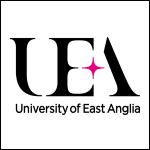EnvEast
Welcome to EnvEast
The EnvEast Doctoral Training Partnership (DTP) was created in November 2013 with funding from the Natural Environment Research Council (NERC). The last of EnvEast's five cohorts of students began their PhD research in the autumn of 2018.
EnvEast draws together expertise from three universities and ten research centres of national and international importance. Led by the University of East Anglia's world-renowned School of Environmental Sciences, the partnership aims to address some of the grand challenges facing contemporary society by providing excellent multidisciplinary training to a new generation of science and business leaders working in the broad field of environmental science.
The EnvEast NERC DTP funded 87 PhD studentships over five student cohorts, starting between 2014 and 2018. EnvEast PhD research projects are grouped around three key themes of international significance, but projects and training in other important areas of NERC's scientific remit were also funded.
EnvEast has been succeeded by the ARIES Doctoral Training Partnership, which will recruit five student cohorts from 2019 onwards.
Partners
The EnvEast Doctoral Training Partnership (DTP) was created in November 2013 with funding from the Natural Environment Research Council (NERC). It draws together expertise from the Universities of East Anglia, Essex and Kent, together with a number of UK research organisations. The DTP aims to address some of the grand challenges facing contemporary society by providing advanced training for a new generation of science and business leaders working in the broad field of environmental science.


